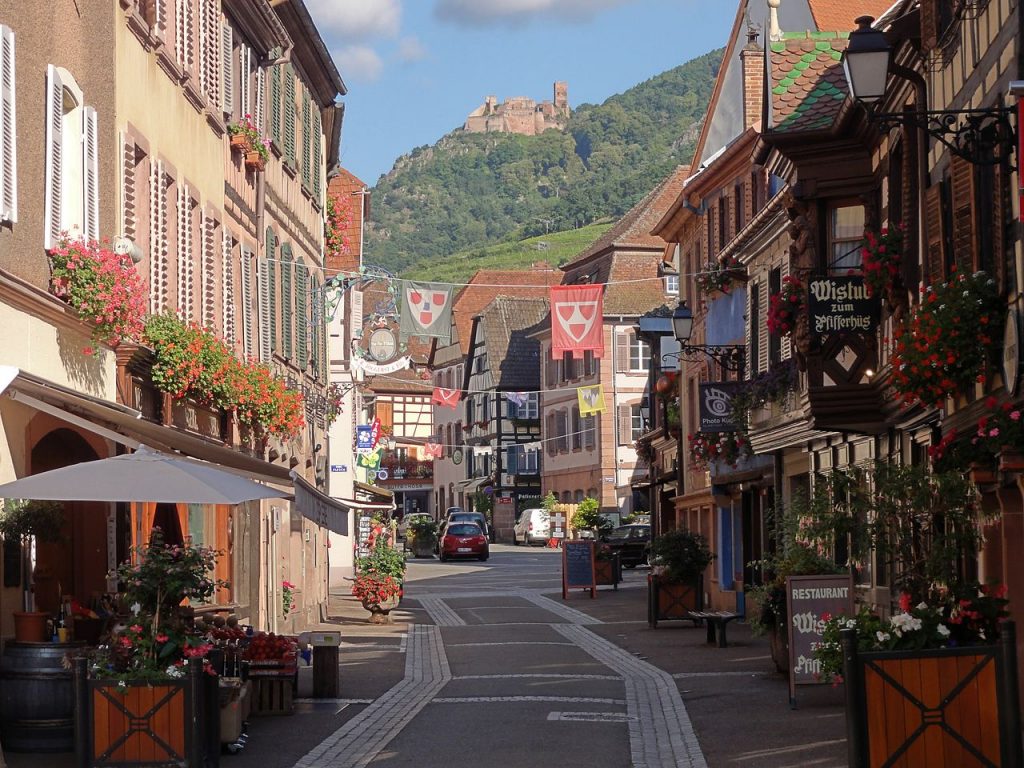
Ribeauvillé is famous for its three castles.
The Jewish presence dates back at least to the 13th century, when they were welcomed by the Lords of Ribeaupierre. The Jewish community had a synagogue by 1311. This welcome was subject to heavy local and regional taxes, which did not prevent atrocities. Following false accusations of poisoning wells, which led to massacres by local militias in the 14th century, particularly in 1337 and during the Plague of 1348-9, the Jewish population declined sharply. A timid return began in 1375.
Like the other towns in the Middle Ages that welcomed them, Ribeauvillé had a rue des Juifs (Street of the Jews), mentioned in a document dating from 1430, a time when the community had its own rabbi. Prohibited from owning land and practising many trades, the Jews were, as in many other places, restricted to trade, regulated by an ordinance of 1450. In the 16th century, they were allowed access to various trades, particularly in crafts.
The Jews were expelled again in 1530 and were unable to resettle in Ribeauvillé until the end of the 17th century.
The Riebeauvillois community grew throughout the 18th century, from 13 families in 1697 to 67 families in 1784, representing just over 300 inhabitants. They were finally granted the right to buy property. In 1700, the Jews of Ribeauvillé and Bergheim joined forces to hire Rabbi Samuel Lévy, son of Cerf Lévy from Metz. He lived in Ribeauvillé and then in Colmar.
A new synagogue was built between 1830 and 1840 on the site of the old one. Ribeauvillé remained a rabbinical seat until the First World War. However, the population began to decline at the beginning of the following century. The Ribeauvillé synagogue has since been converted into a cinema, but part of its structure has been preserved.
Among the great personalities of the Colmar-Ribeauvillé-Bergheim region are several members of the Sée family: the patron of the arts Samuel Sée (born in 1775 in Ribeauvillé), General Léopold Sée (born in 1822 in Bergheim), the doctor Marc-Daniel Sée (born in Ribeauvillé in 1827) and, of course, the member of parliament Camille Sée (born in Colmar in 1847), who promoted secondary education for girls.
Sources : Encyclopaedia Judaica and judaisme.sdv.fr